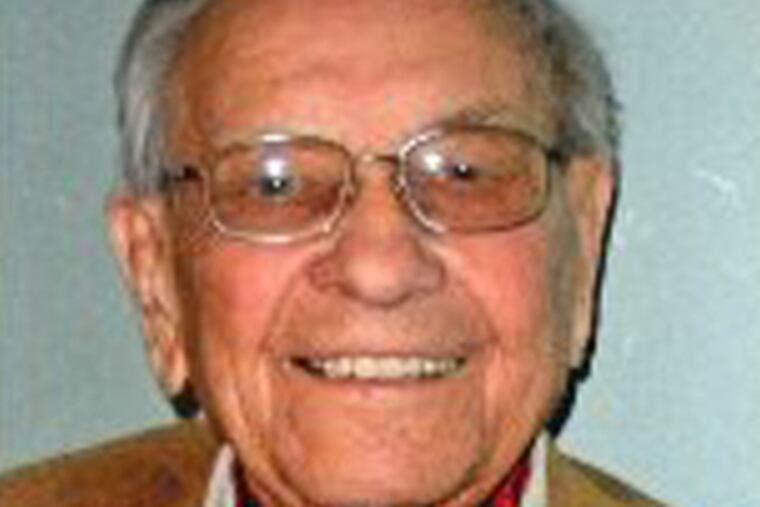Paul L. Gotzy, survivor of Soviet prison, 88
Paul L. Gotzy, 88, who survived communist imprisonment both in the Soviet Union and in Hungary and who was honored by a later Hungarian government, died of cancer on Friday, April 27, at his home in Lansdale. Mr. Gotzy was the owner and operator of Palco Precision Machine & Tool Co. from 1961 to 2007 and a founder in 1961 of a Hungarian American sports club in Hereford, Berks County.

Paul L. Gotzy, 88, who survived communist imprisonment both in the Soviet Union and in Hungary and who was honored by a later Hungarian government, died of cancer on Friday, April 27, at his home in Lansdale.
Mr. Gotzy was the owner and operator of Palco Precision Machine & Tool Co. from 1961 to 2007 and a founder in 1961 of a Hungarian American sports club in Hereford, Berks County.
In 1995, son-in-law Paul Abraham said in a Wednesday interview, the Hungarian government honored Mr. Gotzy's World War II service by naming him a retired lieutenant colonel and giving him a knighthood.
Born in Gyor, Hungary, Mr. Gotzy graduated from the Royal Hungarian Air Force Academy in August 1944 as a pilot but, because many planes had been destroyed, he became an infantry platoon leader fighting the Soviet army. Hungary was then allied with the Axis powers.
"He was wounded with a hand grenade in close combat," Abraham said, and one shard "went through his cheek." The enemy captured the medical station to which he had been evacuated, and he was sent to a prisoner-of-war camp outside Sverdlovsk, near the Ural Mountains, where he lived in unheated wooden barracks from 1944 until late 1947, more than two years after the war in Europe had ended.
"He was released because he lived long enough," sharing food and warmth with friends, Abraham said. "Few came back." Abraham, who was also born in Hungary, said Mr. Gotzy told him more of his ordeals than he shared with others.
"He was arrested in early '49 after the communists won the elections," Abraham said. "The trumped-up charge was that he was disloyal," and he was charged with conspiracy — with others whom he didn't know.
Released from prison in 1952, Mr. Gotzy "was not able to get a position of substantial means," but worked as a helper at a forge in his hometown, becoming a forge master making wheels for railroad cars.
After Hungarian freedom fighters were defeated by Soviet troops in the 1956 uprising and he discovered that he was on a list of suspects, Mr. Gotzy fled with his wife and daughter to Austria, got a brief job with a farm implement manufacturer, and, in April 1957, settled in Lansdale.
Mr. Gotzy's Lansdale firm was a "jobbing shop," said Abraham, who worked there, making "whatever a customer wanted" such as sighting systems used for tanks.
In the same year that he opened his company, Abraham said, Mr. Gotzy and some other Hungarian Americans opened a sports club on a former farm that had only a farmhouse and a barn in Hereford.
Today the Philadelphia and Vicinity Hungarian Sports Club has "a swimming pool, a pond for fishing, five buildings, and about 100 families," all Hungarian American.
Mr. Gotzy finally put to use his education as a pilot and with a half-dozen others flew from airfields in Montgomery County, Abraham said, "mostly for the heck of flying."
Besides his son-in-law, Mr. Gotzy is survived by his wife of 20 years, Valeria; son Thomas; daughters Katalin Abraham and Krisztina Mack; a sister; nine grandchildren; and his former wife of 34 years, Maria.
A visitation was set from 9 to 11 a.m. Saturday, May 5, at the Simcox-McIlvaine Funeral Home, 532 E. Main St., Lansdale, before an 11:30 a.m. Funeral Mass at St. Rose of Lima Church, 428 S. Main St., North Wales, with private interment.
Contact Walter F. Naedele at 215-854-5607 or wnaedele@phillynews.com.